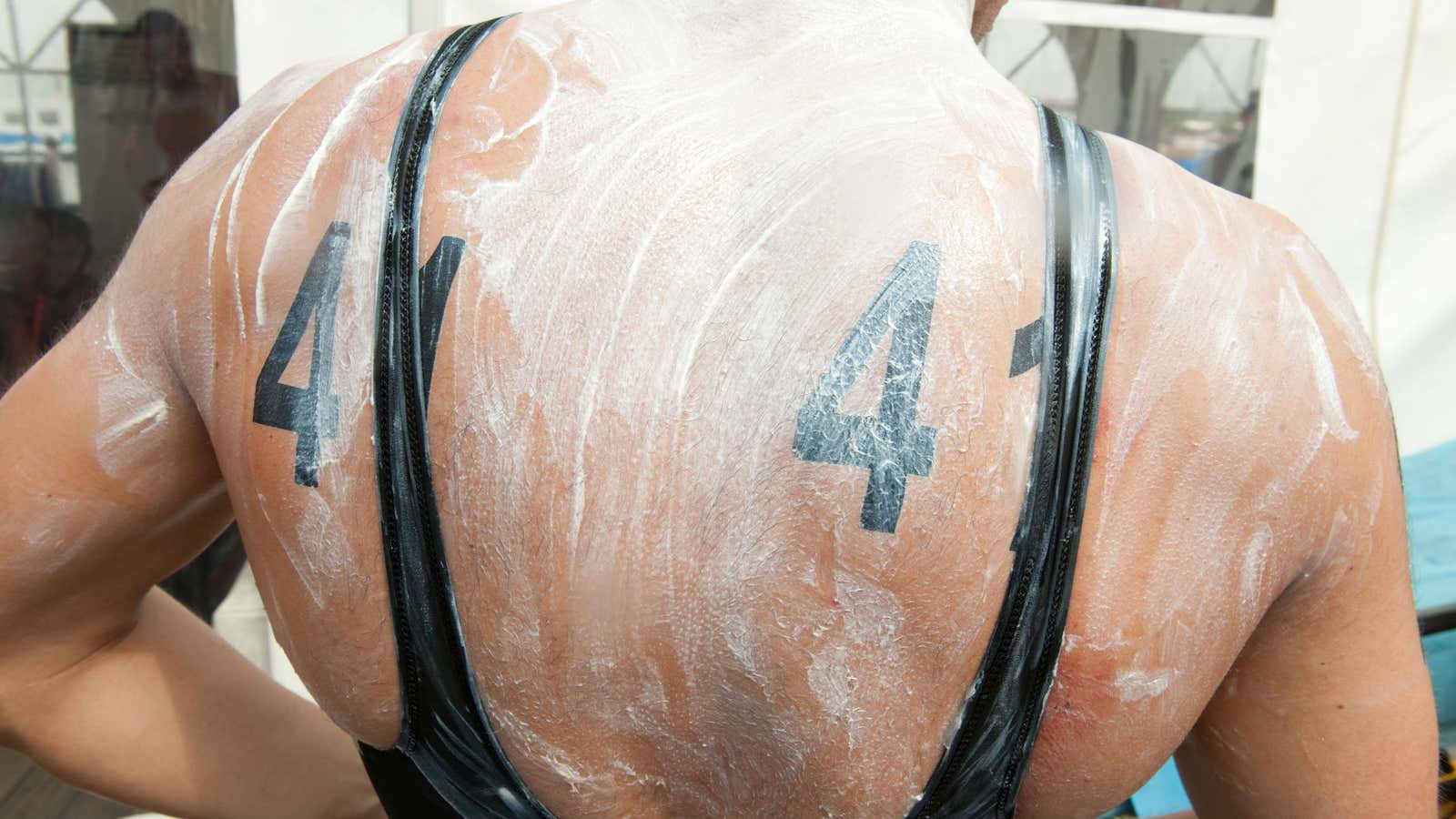Our largest organ—our skin—is crawling with bacteria, as well as fungi, viruses, and even tiny mites. For the most part, this is a good thing: Benign skin-dwelling microorganisms outcompete potentially harmful ones for food (read: oil from our pores and dead skin cells), some of them also produce chemicals that can kill harmful bacteria.
Our bodies can make some of these antimicrobial chemicals on their own, but scientists from the University of California-San Diego, University of California-Berkeley, and the University of Rochester discovered some bacteria that live on our skin do it better. In a paper published (paywall) on Feb. 22, they showed that lotions made from these bacteria can ward off Staphylococcus aureus, the bacterium that causes staph infections if it makes its way past the skin’s barrier through a cut or scrape. Ideally, these antimicrobial lotions will one day be able to serve as an alternative for broad-spectrum antibiotics for staph infections, which, in addition to wiping out large swaths of bacteria in our bodies, contribute to antibiotic resistance.
For their work, researchers tested personalized lotions on five patients with eczema. Eczema is skin condition characterized by a dry, shiny red rash that roughly 20% of the population has at least once in their lives. Most often, it shows up in children and disappears on its own, but it persists in roughly 3% of adults. People with eczema have less diverse microbial communities on their skin than people who don’t, and often have higher levels of S. aureus—which further contributes to their rashes and puts them at greater risk of infections.
Although the five patients in the study all shared an abundance of S. aureus, they each had different colonies of other types of bacteria. The researchers swabbed their individual skin microbiomes and came up with specialized antimicrobial lotions for each patient. They gave each patient custom lotion to put on one arm, and regular lotion for the other. After a day without washing, arms treated with the custom lotion showed greatly diminished staph populations—in two cases, all of the staph was wiped out completely. Patients’ arms treated with regular lotion didn’t show any differences.
The clinical trial was small, but its success suggests that researchers are on the cusp of developing new kinds of targeted, personalized antibiotics. Rather than broad spectrum creams or pills, which wreak havoc on all bacteria communities, these antibiotics would only weed out the problematic bugs, protecting our bacterial ecosystem as a whole.
In this initial trial, researchers were only studying if these personalized antibiotic lotions could kill off staph. “It will be interesting to take it a step further, and test if the beneficial microbes can dampen or cure eczema,” Sruti Naik, an immunologist from Rockefeller University and co-author of the paper, told the Atlantic. Currently, the team is conducting a larger clinical trial with 60 patients testing just that.
